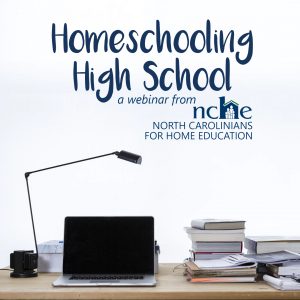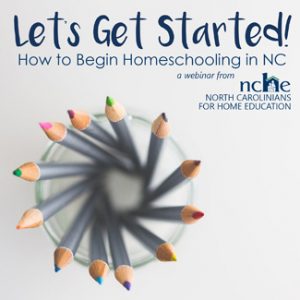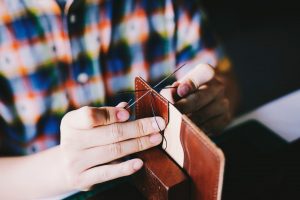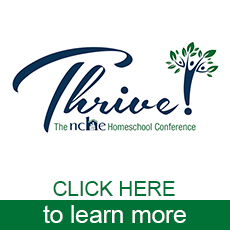
How to Homeschool Art
 Art has always been a huge part of our homeschool because I am an artist. I love making art, I love teaching art, and I love watching children create art! After we began homeschooling, I realized that a lot of families did not regularly incorporate art into homeschool. These were the most common reasons I heard:
Art has always been a huge part of our homeschool because I am an artist. I love making art, I love teaching art, and I love watching children create art! After we began homeschooling, I realized that a lot of families did not regularly incorporate art into homeschool. These were the most common reasons I heard:
- I don’t have an artistic bone in my body; I could never teach art.
- It costs too much money to send them to art lessons.
- My kids are not artistic.
- It’s too hard to get all of that out and clean it up.
- I don’t have the bandwidth to add one more thing to all that I’m teaching.
- Art and music are not as important as reading, writing, arithmetic, and science.
If this sounds familiar, here are some great ways to bring art into your homeschool this year.
- You don’t have to be artistic to teach art; you only have to be willing. That’s your first step! There are some truly amazing homeschool art resources if you are willing to step out of your comfort zone and learn with your children. (For what it’s worth, I didn’t know I had any mathematical bones until we successfully conquered Algebra!)
- The second way to incorporate art is to explore and see what’s out there. From online instruction via YouTube, to subscription boxes, or homeschool co-ops that meet via Zoom, there are lots of ways to learn art together inexpensively or for free.
- If your child lacks an interest in making art, that doesn’t mean there is no room to appreciate iconic paintings, sculpture, artifacts, and architecture. Learning about art—even without creating it—will give your children a great art education. Studying art history by using flash cards is a great way to bring art into the homeschool classroom.
- If you are annoyed by the mess, that doesn’t mean that you have to give up on art. Opt for drawing with pencils & colored pencils in a sketchbook. It has zero mess, may be taken anywhere, and is completely self-contained (not to mention affordable.)
- Stop thinking about art as its own subject, and start thinking of art as an extension of other subjects—like history or writing. Every culture has always had art! Sketching can be incorporated into whatever you’re doing in your core curriculum (reading, writing, science, and math.)
- Art has always been the perfect arena for experimentation that leads to discovery in other academic disciplines. Leonardo DaVinci. Benjamin Franklin, Nikola Tesla, Thomas Edison, and Albert Einstein are prime examples of well-rounded students whose education included equal emphasis on humanities and sciences. Science and math are incredibly artistic!
What are your favorite ways to incorporate art in your homeschool classroom? Tell us in the comment section below.
Can You Really Homeschool through High School?
 I’ve heard a number of homeschool parents say that they plan to homeschool until high school and then put them in public school. I can understand why; homeschooling high school can be intimidating. Parents often feel that many high school courses are over their head. In addition, so much is at stake as we build transcripts and prepare for college!
I’ve heard a number of homeschool parents say that they plan to homeschool until high school and then put them in public school. I can understand why; homeschooling high school can be intimidating. Parents often feel that many high school courses are over their head. In addition, so much is at stake as we build transcripts and prepare for college!
From my experience, however, high school is one of the most important and rewarding times to homeschool. I have graduated three and will have two more in high school this fall. High school is when students can really take off in independent learning and exploration that is tailored to their personal interests. They can go as far as they want! They can take advantage of the flexibility to put more hours into working a job or develop other skills.
There are three reasons I believe that you can homeschool high school.
- You don’t have to teach all the courses. If you’ve been homeschooling, you’ve already discovered this. There are excellent online courses and cooperatives from which they can take courses. One of the best opportunities for upperclassmen is to take college courses for dual enrollment.
- You shouldn’t have to hold your student’s hand through high school. This is a time for developing self-discipline, schedule keeping, goal setting, and independent learning. Developing these skills and character qualities is an important part of preparing for a productive, meaningful life.
- The last reason I believe you can homeschool through high school is because North Carolinians for Home Education is here to help! We have so much information and so many resources to equip for this task.
Most importantly, we presented a free homeschooling high school webinar on August 4, 2020. We have two veteran homeschool moms who have been speaking and helping parents homeschool high school for many years. They answered these critical questions:
- Why homeschool high school?
- Am I able to do this?
- What is the law and how does it apply in high school?
- What courses are normally taken and how do I accomplish them?
- How do I do a transcript?
- What if I plan sending my teen back to school next year?
During the webinar, we also offer other resources, including a list of recommended recordings from our Thrive! Conference. If you want to hear answers to these questions, then go register to watch the recording of the webinar today!
Matthew McDill
NCHE Executive Director
How Does Learning Happen?
 by Sarah Hicks, July 2020
by Sarah Hicks, July 2020
Scores of books have been written on educational philosophy. A lot of those resources make education harder than it has to be—especially since most people already have an educational philosophy, even if they’ve never realized it or named it.
Your ideas on education are personal. They include elements of your own education that you liked or did not like. They also include elements you wish you had experienced, pitfalls you’ve heard that others experienced, and your fears. Educational philosophy is not something upon which we all have to agree, and it really comes down to answering three simple questions:
- How do I think learning occurs?
- What are my goals in education?
- How do I get learning to occur… so that I can accomplish my goals in education?
Your educational philosophy is what causes you to say a curriculum or co-op feels easier, seems more natural, or just makes the most sense to you, and here’s why.
Some parents are more pragmatic and prefer selecting curriculum that they feel comfortable teaching. Why? Because their philosophy is built on the belief that the teacher’s mastery of the subject and effective, fervent communication will impart learning to the student.
Other parents simply surround their children with beautiful things, and then relax and let their children decide what they want to do. Why? Because their philosophy is rooted in the idea that learning will occur when a child follows her own interests and discovers things at her own pace.
Still others will choose curriculum because it seems like the best methodology—whether they and their children really like it or not. Why? Because they believe that learning is systematic, and their philosophy is centered on following the system that will produce educational results.
One of the things I like the most about NCHE is that our board is happy to help parents find resources, but they do not generally offer opinions about which you should choose. That’s because our collective educational philosophy is grounded in the belief that parents know what works best for their own children. When you and your spouse identify your educational philosophy, everything that fits into that scope becomes apparent to you. Everything that doesn’t, clearly isn’t for you. This is quite liberating! And you are filled with confidence when you discern this for yourself.
Here are some questions that could help you and your spouse get the conversation started:
- Try writing down what you believe about how children learn in general.
- Now write down what you have observed about how your child learns in particular.
- What are your goals in your children’s education?
- What are your expectations of yourself, your spouse, and your child?
- Have you discussed your expectations together as a family?
If parents are lifelong learners, they will model the joy of learning for their children. So be sure to sharpen the tools in your own toolbox– attend conferences, read blogs, join a support group, rest, and read! Take care of yourself, because a whole education is more than just learning facts about reading, writing, and arithmetic. A complete education nurtures your mind, body, and soul. You have what it takes to teach your children, and NCHE is here to help you every step of the way!
Did these questions help you determine your educational philosophy? Let us know in the comments below.
As Homeschooling Grows, Do Children Need More Protection?
 On July 20, 2020, Jane R. Wettach wrote an article for NC Policy Watch, As homeschooling grows, children need protection. She writes, “A new report from Duke Law School makes a modest proposal focused on the few homeschooled children whose educational needs are not being met by their parents. Protecting Homeschoolers recommends that ‘educational neglect’ be included as an aspect of child neglect under state law. That would give local departments of social services the ability to receive a complaint, as it does for other types of child neglect, that a child’s educational needs were being neglected by the parents.”
On July 20, 2020, Jane R. Wettach wrote an article for NC Policy Watch, As homeschooling grows, children need protection. She writes, “A new report from Duke Law School makes a modest proposal focused on the few homeschooled children whose educational needs are not being met by their parents. Protecting Homeschoolers recommends that ‘educational neglect’ be included as an aspect of child neglect under state law. That would give local departments of social services the ability to receive a complaint, as it does for other types of child neglect, that a child’s educational needs were being neglected by the parents.”
North Carolinians for Home Education are advocates for education. We help parents homeschool with confidence and joy. We stand with other North Carolinians who want every child to have the opportunity to enjoy an excellent education. Wettach writes that her proposal “is meant to begin a conversation about the imperative that all homeschooled children get the education they need to ably function in the economy and democracy. The report presents preliminary ideas, designed to be a jumping off point for interested members of the General Assembly. A study committee that brings in stakeholders in the homeschooling world would be a good next step.”
North Carolinians for Home Education has been a primary stakeholder in the homeschooling world since 1984. We would love to be a part of this conversation and participants in a study committee that would consider these issues.
There are two concerns that we will initially contribute to this discussion. They are both related to some of the primary reasons homeschooling not only exists in the first place but has become such a strong movement and community.
First, many parents choose to homeschool because they have observed that their children are not receiving the best possible education in the public school system. There are many different effective educational strategies used in homeschooling. Children learn at different paces with specialized needs in various areas. Home education provides the flexibility and one-on-one attention that makes addressing those varying needs possible.
The results have been clear. As Wettach acknowledges, homeschool students have consistently performed at or above average on standardized tests. So, we are left with this question: Why should North Carolina citizens rely on the government to determine and ensure standards of education are being met? Has it been proven that the government is more capable than parents in this area?
A second reason that many parents have chosen to homeschool is because they desire to include in their children’s education religious and moral instruction. Section 1, Article IX of the NC Constitution reads: “Education encouraged. Religion, morality, and knowledge being necessary to good government and the happiness of mankind, schools, libraries, and the means of education shall forever be encouraged.” However, many parents have observed not only a significant lack of religious and moral instruction in public education, but often teaching that directly contradicts the religious and moral instruction they desire for their children.
If Wattach’s proposal were to be carried out, who would determine standards of education and how? Is it not a reasonable concern of North Carolina citizens that those who end up determining those standards of education would eventually include standards of religious and morality that violate the parent’s rights to teach what they believe? Would those who determine these standards understand the homeschooling process and how it is different from institutional schools? Would they understand and allow for developmental progress and learning difficulties?
We want all children in North Carolina to have the opportunity to receive a quality education. There are certainly students in home education, private school, and public school that are not receiving the kind of education that they need. This is a concern for all students. It is not a special concern for homeschooled students. The reason that “homeschoolers fiercely prize their independence and their freedom,” as Wattach points out, is because they believe that parents are more capable, or at least as capable, as the government to educate their children and that their constitutional freedoms to teach their children according to their own beliefs must be defended.
– Matthew McDill, June 22, 2020
We Can Help You Get Started Homeschooling
 So many parents in North Carolina are now choosing to homeschool that the state site for opening a homeschool was unable to process any more requests earlier this month. [Fortunately, things seem to be working again]. According to Governor Cooper’s recent announcement, public school will be very different this year, meeting only a couple of days a week and with plenty of safety precautions. Parents are concerned about safety and continuing to try to manage their student’s public school assignments at home. If they are going to be at home most of the time anyway, why not take ownership of your children’s education?
So many parents in North Carolina are now choosing to homeschool that the state site for opening a homeschool was unable to process any more requests earlier this month. [Fortunately, things seem to be working again]. According to Governor Cooper’s recent announcement, public school will be very different this year, meeting only a couple of days a week and with plenty of safety precautions. Parents are concerned about safety and continuing to try to manage their student’s public school assignments at home. If they are going to be at home most of the time anyway, why not take ownership of your children’s education?
If you are considering homeschooling, be sure to download our free resource, Top 10 Questions Parents Ask Before Choosing to Homeschool. This will provide some answers and resources to your biggest questions about home education.
If you are choosing to homeschool and wondering how to get started, we can help. We are offering a free webinar next Thursday, July 23 at 2pm called Le’ts Get Started: How to Begin Homeschooling in NC.
[*Note: You can now sign up to view the recording of this webinar for free.]
Two experienced homeschool moms that are on the North Carolinians for Home Education board will be answering the most important questions about getting started. Then at the end, they will also answer your questions! Some of the questions they will be answering:
- Am I qualified to teach my children?
- What are the legal requirements in NC?
- How do I select curriculum?
- Where can I find support and resources in NC?
- What about socialization?
- How do I open my homeschool in NC?
- and more . . .
North Carolinians for Home Education (NCHE) is here to help you homeschool with confidence and joy! Go ahead and join NCHE today so that you will receive our weekly emails, magazine, and other fantastic educational and community opportunities.
This is an overwhelming decision for many, but let me assure you that you have the ability and resources to homeschool your children. We are here to help you do it. Please be sure to share these free resources with your friends as well.
– Matthew McDill, June 17, 2020
Summer Reading Goals
 There was a mother who had a plan and bingo was its name-o.
There was a mother who had a plan and bingo was its name-o.
B-I-N-G-O!
Visual helps like progress charts are a great way for homeschool parents to help their children stay motivated with long-term goals (like more reading and less screen time this summer.) This month, your family can download a free Reading Goals Bingo card.
Research shows that reading aloud with your kids is incredibly beneficial—even with kids who are old enough to read on their own. Even with… teenagers! Increased empathy for others, improved communication and critical thinking, and meaningful family discussions are just a few of the benefits of family read aloud.
Your family can also experience the benefits of reading aloud (and win at bingo) if you read aloud to your children just once per week. The card is filled with different reading options that are sure to engage a diversity of interests and reading levels in your homeschool.
Did your family enjoy this download? Send a picture of your family reading together to media@nche.com. You could be featured in the fall issue of GREENHOUSE magazine.
Hello, Handicrafts!
 Handicrafts are handmade items that are usually decorative, ornamental, or utilitarian. From the knotted and woven Anatolian prayer rugs of Turkey, to the baskets of the Pima people of Southern Arizona, handicrafts can be found all around the globe. In fact, some foods are so intricately crafted that they may even be considered edible handicrafts!
Handicrafts are handmade items that are usually decorative, ornamental, or utilitarian. From the knotted and woven Anatolian prayer rugs of Turkey, to the baskets of the Pima people of Southern Arizona, handicrafts can be found all around the globe. In fact, some foods are so intricately crafted that they may even be considered edible handicrafts!
Handicrafts are a fun way to introduce your students to the customs, traditions, and cultures of other people groups. You can incorporate them into a variety of subjects, including history, geography, literature, and even math! Plus, handicrafts are a great way to keep kids busy all summer long. Here are a few to try.
Weaving With a piece of cardboard, you can easily make a loom by cutting slits at the top and bottom. Weave yarn, large scraps of fabric, or even elements from nature like leaves, pine straw, and flowers. This is a great way to teach preschoolers about patterns.
Clay Clay is so versatile! Roll it out into a slab and have fun pressing objects into it. Build coil pottery dishes and vases. Sculpt your clay, or pour it into molds. Make earrings, magnets, Christmas ornaments, or wall hangings! Glazing and painting clay is fun, too. In fact, the chemistry of crackle glaze pottery is pretty fascinating.
Beads No need to run to the arts and crafts store: beads can be made from just about anything. The pages of old magazines can be rolled up, glued, and turned into beads. With a little assistance from mom or dad and a power drill, acorn tops, bottle caps, or even hardware from the garage are easily strung. Be sure to carefully watch children when you’re using small pieces.
Sewing Cross stitching, embroidery, knitting, crochet, and leather work are great ways to make useful and decorative items. Sewing on pillowcases, cloth napkins, and personalizing clothing your child already owns is a great way to begin. She may even begin thinking about how many she can make, selling her sewing projects, and entrepreneurship. (See? We told you there’d be math!)
For more ideas about handicrafts, follow us on Pinterest at @nche1984.
If you try one of these projects, be sure to send a picture of your family to media@nche.com. You could be featured in the fall issue of GREENHOUSE magazine.
What Is a Co-Op?
 Co-op is an abbreviation that stands for co-operative learning. In the context of homeshcool, co-ops are as unique and varied as the homeschoolers that comprise them. In general, co-ops are at least 2 families who agree to get together regularly with the intention of learning—whether the learning goals are academic, social, experiential, philanthropic, or something else.
Co-op is an abbreviation that stands for co-operative learning. In the context of homeshcool, co-ops are as unique and varied as the homeschoolers that comprise them. In general, co-ops are at least 2 families who agree to get together regularly with the intention of learning—whether the learning goals are academic, social, experiential, philanthropic, or something else.
Some co-ops are centered around getting together to explore the great outdoors. They are less focused on assignments and more geared toward following the child’s natural interests or building community.
The curriculum you choose may also lead you to look for a local co-op with similarly minded families. Five in a Row, My Father’s World, or Story of the World are examples of curricula that work great with small groups of children. Local co-ops are usually governed by parents or retired homeschool parents, but some may be directed by a larger parent organization.
Some co-ops are very structured. They have detailed lists of recommended reading, robust goals for memorization and recitation, hearty projects, field trips, or even offer tutoring for their students. They are popular because some families really thrive with this structure. Even in a structured co-op, parents are still the primary instructors and ultimately it is they who choose how deeply the students will be involved in each subject.
Sometimes families just get together informally to do their own thing, and that works too! This is a great fit for unschoolers, eclectic homeschoolers, and other homeschoolers who want to go really deep into a single subject like coding or biology.
So what isn’t a co-op?
University Model Schools University model schools are not homeschools or homeschool co-ops for a number of reasons. The biggest reason is that students are not enrolled in homeschools operated by their parents. In a university model school, students are enrolled at that university model school and the chief administrators who choose curriculum, administer tests, and keep attendance records are also not the child’s parents. While these schools do meet together once or more per week, and a good deal of the student’s work may be done at home, the university model is an example of distance learning—just like when you are a student enrolled at a university!
Dual Enrollment If your child is taking classes at a college or community college and is still working toward graduating from your homeschool, then they are still homeschool students. The state governs college course descriptions, and college professors set the content and sequence of college classes. Professors are responsible for teaching, grading students’ work, and awarding credit for completion of the class. While classes offered at colleges or community colleges may count for portions of your homeschool academic credits, these are college classes and not a co-op.
Enrichment Classes Say you drop your child off at a ballet studio for 5 hours each week. You want to count this as physical education. That’s great! You can do that. But even though there are other students in the class, this is not a co-op. This is an enrichment class. Enrichment classes are a great component in home education!
You can find a comprehensive list of local co-ops by region right here on the NCHE website. Connecting you with other homeschoolers is one of the ways that NCHE helps you homeschool with confidence and joy! Stay connect with us on Facebook, Instagram, Pinterest, and Twitter at @nche1984.
Invite new homeschoolers to your co-op by introducing yourself and your co-op in the comment section below.
What Is a Homeschooler?
 How would you answer the question, “What is a homeschooler?” For most of us, it would be pretty easy to answer. We would probably say that a homeschooler is a parent who teaches their kids at home. This seems so simple, but these days with public and private schools sending their students home to do their school, this gets muddy. Also, when you try to write a legal definition it becomes much more complicated. You run into questions such as: Can someone other than the parent be the homeschooler? Can someone other than the parent provide instruction? How much teaching does the parent have to do—one class, 50%, 100%? Can teaching be done outside the home?
How would you answer the question, “What is a homeschooler?” For most of us, it would be pretty easy to answer. We would probably say that a homeschooler is a parent who teaches their kids at home. This seems so simple, but these days with public and private schools sending their students home to do their school, this gets muddy. Also, when you try to write a legal definition it becomes much more complicated. You run into questions such as: Can someone other than the parent be the homeschooler? Can someone other than the parent provide instruction? How much teaching does the parent have to do—one class, 50%, 100%? Can teaching be done outside the home?
Homeschool laws are different in every state. Therefore the legal definition of a homeschool is different state by state. When we wrote the first definition of a homeschool back in 1988, it said “‘Home school’ means a nonpublic school in which one or more children of not more than two families or households receive academic instruction from parents or legal guardians, or a member of either household.” It never occurred to us back then that this would be interpreted to mean all academic instruction, that we could not do anything outside the home. Through the next 25 years, homeschoolers had to live with this interpretation. It meant that if our student took calculus from a tutor who provided the primary instruction, we had to hide it from the authorities. DNPE had a “don’t ask, don’t tell” policy back then. They really didn’t want to know if we were using an outside resource for academic instruction. This was a real problem for us, especially as we dealt with high school. My point in this is to show how important a legal definition is. We would have never thought that saying the parent provided academic instruction would have prevented us from getting any outside help.
In 2013, NCHE decided it was time to change the definition to fix this problem. We spent months working on a new definition. With every new iteration, we ran into problems. We finally landed on the current definition: “Home school means a nonpublic school consisting of the children of not more than two families or households, where the parents or legal guardians or members of either household determine the scope and sequence of academic instruction, provide academic instruction and determine additional sources of academic instruction.” We made it clear that a homeschool can use outside resources. This new definition passed every vote unanimously.
Since in NC this defines a homeschool, let’s break this down and look at what this really means.
“Home school means a nonpublic school…”
A nonpublic school (private school) is a school that is not governed by the State Board of Education or Department of Public Instruction and is not funded by government funds. In NC, we have a separate division to govern nonpublic schools, the Division of Non-Public Education. In the late 1970s, private school leaders, especially religious private school leaders, fought to create this division so that DPI could not dictate what was taught in private schools
“…consisting of the children of not more than two families or households…”
A homeschool can have children from two families, but not more than two families. If a school consists of more than two families’ children, it would need to file as a private school, not a homeschool. In a two family homeschool, one of the families would open a homeschool and add the children from the other family to their school.
“…where the parents or legal guardians or members of either household…”
The person opening a homeschool must fit one of these three categories.
“…determine the scope and sequence of academic instruction…”
A parent, legal guardian or someone living in the household must determine the scope and sequence of academic instruction. First, let’s define a scope and sequence. Scope refers to the breadth and depth of content and skills to be covered. Sequence refers to how these skills and content are ordered and presented to learners over time. A homeschool must decide what is taught and when it is taught. For example, if you send your child to a private school, that school determines what is taught and when it is taught, not the parent. There may be some room for the student making some choices, but it is the school that determines what has to be taken in order to graduate. If someone other than the homeschool parent, legal guardian or someone living in the household is determining what is taught and when it is taught or graduation requirements, this does not meet the NC definition of a homeschool.
“…provide academic instruction…”
A parent, legal guardian or someone living in the household must provide academic instruction. The word “academic” is significant here. Academic instruction has generally been defined as a subject that we would consider a core subject. Two previous NC Attorneys General interpreted academic instruction as core curriculum. The definition doesn’t say how much academic instruction the parent needs to provide, but it is clear that the parent needs to provide some. In other words, the parent cannot farm out all academic instruction and still be a homeschooler.
“…determine additional sources of academic instruction.”
The homeschooler has the freedom to determine additional sources of academic instruction. This makes it clear that a homeschool student can take advantage of other sources of academic instruction.
I hope this discussion of the legal definition of a homeschool has helped clarify your understanding. Within this definition, there is so much room for flexibility to homeschool in a way that best fits the needs of your family and students.
During this time of COVID19 with so many children learning at home with online or distance learning from their public or private schools, there has been confusion about what a homeschool is. NCHE wishes these parents the best as they deal with this unusual situation.
If you have any questions about what it means to homeschool, please leave a comment.
– Debbie Mason, July 3, 2020
Summer Vacation
 In Danville, there are 104 days of summer vacation, and no one has more game than the Flynn-Fletcher family of the hit cartoon series “Phineas and Ferb.” So if you have no idea what you’re going to do today, you’re in luck. Find a colossal list of backyard projects when you follow us on Pinterest at @nche1984.
In Danville, there are 104 days of summer vacation, and no one has more game than the Flynn-Fletcher family of the hit cartoon series “Phineas and Ferb.” So if you have no idea what you’re going to do today, you’re in luck. Find a colossal list of backyard projects when you follow us on Pinterest at @nche1984.
Projects include:
Build a Rocket
Find directions to build rockets of all sizes. Discuss space missions, Katherine Johnson and the hidden figures of NASA, and the future of space travel.
Fight a Mummy
Ancient Egyptians weren’t the only people to mummify. Research the how, where, and why of mummification, and make a few mummy crafts.
Climb the Eiffel Tower
Build Eiffel Tower models of all sizes!
Discover Something that Doesn’t Exist (or Does It?)
Find everything you need to go on a scavenger hunt looking for Bigfoot. Discuss myths, legends, and tall tales.
Give a Monkey a Shower
Watch what is, quite possibly, the cutest video you’ve ever seen! Go behind the scenes to see an orphaned baby monkey’s journey to a new life.
Surf Tidal Waves
Learn all about the events that cause tidal waves, and build a working model.
Create Nanobots
Speaking of working models, watch batteries and toothbrush heads make the funniest nanobots you’ve ever seen. Get the DIY instructions!
Locate Frankenstein’s Brain
These silly crafts are not as gross as they sound.
Find a Dodo Bird
Make dodo bird masks, and practice what you think they could have sounded like.
Paint a Continent
Have fun painting all seven continents. The kids don’t have to know that this is a geography lesson!
If you try one of these projects, be sure to send a picture of your family to media@nche.com. You could be featured in the fall issue of GREENHOUSE magazine.



